Vinattieri 1385 COO Juan Muñoz-Oca reveals how 600 years of Antinori heritage and modern sustainability shape his favorite wines.
“I’m stupidly obsessed with wine.”
That’s how Juan Muñoz-Oca, Chief Operating Officer of Vinattieri 1385, describes himself—and the phrase fits. As the man overseeing three of America’s most storied wineries—Stag’s Leap Wine Cellars, Antinori Napa Valley, and Col Solare in Washington—Muñoz-Oca doesn’t just make wine; he lives it.
Vinattieri 1385 COO Juan Muñoz-Oca in a candid interview
In conversation, he radiates both reverence and humor. He’ll wax poetic about terroir, then grin and admit that even the world’s best Chianti tastes better “under the Tuscan sun than in Toledo, Ohio.” That blend of depth and relatability makes his story irresistible to anyone who loves great wine—and great stories.
A Six-Century Legacy, Reimagined in Napa
Muñoz-Oca represents a dynasty. The Antinori family, based in Florence, has been making wine since 1385—now in its 26th generation, with the 27th already at work. Piero Antinori, of the 25th generation, famously redefined Tuscan winemaking with the birth of the Super Tuscans, wines that shook up tradition and changed Italy’s reputation on the world stage.
Vinattieri 1385 COO Juan Muñoz-Oca reflects on wine legacy
Today, Piero’s daughters lead the company with innovation and grace, managing estates from Italy to the U.S. Their American footprint tells a story of friendship, curiosity, and trust.
“When Warren Winiarski, founder of Stag’s Leap Wine Cellars, decided to retire, his first call was to Marchese Piero,”
Muñoz-Oca explains
“He asked if he would continue the legacy.” After years of partnership, the Antinori family now fully owns the iconic Napa property—home to the 1976 Judgment of Paris winner that forever changed the world’s view of American wine.
From Tuscany to Napa: The Art of Obsession
“I spend most of my waking hours thinking about wine,” Muñoz-Oca says, half laughing, half confessing. “We take care of every single detail, including the storytelling, because that’s part of the experience.”
For him, making great wine is a full-sensory endeavor—equal parts science, emotion, and culture. He compares it to art or fashion: something to learn, savor, and share.
It’s also about connection. Whether he’s working at Antinori Napa Valley on Atlas Peak or visiting Col Solare in Washington’s Red Mountain AVA, Muñoz-Oca’s approach is to listen—to the land, to the people, and to the legacy behind each bottle.
And yes, he still geeks out over every vintage. “You only get about forty tries in your lifetime,” he says. “Each harvest is like perfecting a dish—you tweak, refine, and hope the next one tells an even better story.”
Stewardship, Soil, and the Future of Fine Wine
While his career spans continents—from Argentina to Australia and France to California—Muñoz-Oca’s philosophy is grounded in one truth: take care of the soil, and the soil will take care of the vine.
“Our Stag’s Leap Wine Cellars just became Regenerative Organic Certified®,” he shares with pride. “That certification adds animal welfare and social responsibility to organic farming—it’s a complete ecosystem.”
He believes winemakers must be stewards of the land. “Our business model depends on the health of the environment. By definition, we take care of the place where we are.”
It’s not just a philosophy—it’s a promise to future generations. “The Antinori family has been making wines for over 600 years,” he says. “We want to make sure we can do it for another 600.”
The Wines That Spark Curiosity
When asked about memorable wines, Muñoz-Oca doesn’t list only rare vintages or price tags. “Great wine is memorable,” he insists. “It sparks curiosity—it makes you wonder what the winemaker did to make it taste that way.”
One early “aha” moment came from a Chardonnay by Argentina’s Catena family—his first experience with barrel fermentation. “It was transformative,” he recalls. “I couldn’t understand how they created those savory notes, that texture, without heaviness.”
Today, his favorite wines reflect both heritage and innovation:
-
2021 Tignanello (Tuscany) — “The place is magic. It’s been in Wine Spectator’s Top 10 three years running—it just speaks to where it comes from.”
-
2019 Stag’s Leap Wine Cellars SLV Cabernet Sauvignon (Napa) — “It’s a representation of everything we stand for—heritage, precision, and the land’s unique voice.”
And, true to his Argentine roots, he still can’t resist a Cabernet Sauvignon with something off the grill. “Anything with a little char and smoke makes me happy,” he laughs.
Mini FAQ: Juan Muñoz-Oca Wine Philosophy
Q1: What does “stupidly obsessed with wine” mean?
For Juan, it’s about full immersion—from vineyard to storytelling. Every decision aims to heighten the drinker’s experience.
Q2: How does Vinattieri 1385 promote sustainability?
Through regenerative organic farming, wildlife preservation, and a commitment to social responsibility across all estates.
Q3: What connects the Antinori family’s global properties?
Curiosity, craftsmanship, and six centuries of continuous innovation—bridging Tuscany, Napa, and Washington.
Legacy in Motion
For Juan Muñoz-Oca, wine isn’t just what’s in the glass—it’s a living story. One that began in Florence in 1385, crossed the Atlantic, and now thrives in the volcanic soils of Napa and the basalt slopes of Red Mountain.
“Wine elevates every experience,” he says. “It’s not just what we drink—it’s how we celebrate, connect, and remember.”
Visit www.AntinoriNapaValley.com or www.SLWC.com to explore the Antinori legacy.
Vinattieri 1385 COO Juan Muñoz-Oca reveals how 600 years of Antinori heritage and modern sustainability shape his favorite wines.


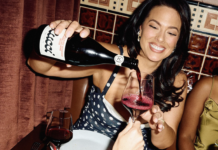



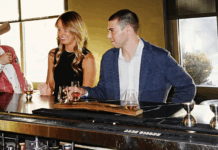

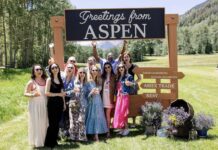
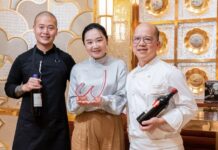






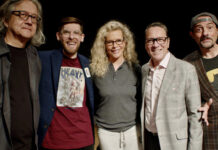

![From Medical Miracles to Movies: Indie Film, Bourbon, and Giving Back [Interview with Producer George Ellis] Dr. George Ellis shares how indie film, bourbon, and purpose collide](https://dailyovation.com/wp-content/uploads/2026/01/george-ellis-headshot-218x150.jpg)












